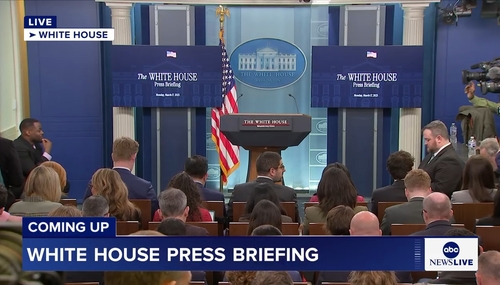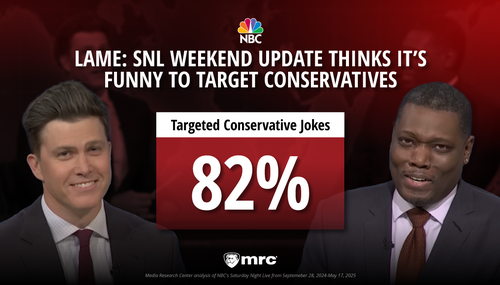Appearing on CNN’s New Day Wednesday morning, Republican strategist and regular CNN commentator Scott Jennings slammed the New York Times for a “deranged” and “awful” front-page story published on July 4th that argued the American flag had become a symbol of political division. While co-host Brianna Keiler touted the left-wing drivel as if were serious analysis, Jennings denounced the article as “nutty” and a sign of “reflexive partisanship” against conservatives.
“I wanted to see what you both think about a – an article in The New York Times that has garnered a lot of attention....the author writes, ‘Today flying the flag from the back of a pickup truck or over a lawn is increasingly seen as a clue, albeit an imperfect one, to a person’s political affiliation in a deeply divided nation,’” Kielar noted to Jennings and TheGrio’s senior correspondent Natasha Alford during the 6:00 a.m. ET hour.
Jennings didn’t hesitate to blast the premise of the piece: “How deranged, how crazy have we gotten over our national politics that, if you see someone flying an American flag, you run the other direction, because you assume that you all don’t agree on politics? It’s crazy.” He reminded viewers of what the flag really represents:
Here are the flags that matter: the ones that our soldiers wear on their uniforms, the one on the moon, the ones that we revere as school children and say a Pledge of Allegiance to. We’re not taking a pledge to any political party. We are taking a pledge to our country, and that’s how we ought to view the flag.
“I really hate this viewpoint,” Jennings confessed regarding the Times article, before making it clear where Republicans and Democrats stand on the issue: “...there’s only two political parties in this country. One of them says they love the flag, and one right now is coddling a viewpoint of people who say, ‘I think it’s divisive.’”
He summed up why the left-wing media are suddenly afraid of the red, white, and blue: “Trump said he loved the flag, so now they say they’ve got to be against it. It’s nutty, it’s reflexive partisanship, and it’s awful; and it ought to stop.”
Desperately trying to cling to the notion that the American flag was dividing the nation, Alford suggested that since some vile groups misuse the flag, the issue must be real:
I know that there’s a history in this country of certain groups using the flag, the American flag, to intimidate marginalized groups and people of color....You know, when the KKK assemble, they often used the American flag as part of their gatherings....There are people who proudly serve and honor the – the values that the flag represents. But there are people who manipulate. And they act as if they have a monopoly over the flag, over patriotism. And – and when they show up to intimidate and to abuse and to try to inject fear into certain communities, they use that – that flag along with other flags and symbols....You saw this – this white supremacist march in Philadelphia just recently. There was a version of the American flag that’s represented there.
Keilar similarly chimed in: “I think one of the more recent images that we might think of, of the American flag being very visible, was people on January 6, who were storming the Capitol, beating police officers with it....There certainly is an attempt by extremists to create an association between themselves...and the flag.”
Jennings rightfully condemned anyone abusing the flag to promote violence or extremism, and reiterated:
The American flag is a unifying symbol. It is a unifying symbol for me. It is a unifying symbol for people around the world who see it as a beacon of hope and freedom. And we all have to stand up and reclaim it. Anybody using it for violence and hate and division is wrong. And anybody who wants to stand and wave the flag and say here’s what it really stands for, in my opinion, is right. It’s not political, it’s not partisan. Surely we can all join together on that message.
Despite the best efforts of The New York Times and CNN, Jennings wasn’t about to let the American flag become the latest casualty of leftist cancel culture.
This failed attempt by the cable channel to cast a cloud over Old Glory just days after Independence Day was brought to viewers by T-Mobile and Sleep Number. You can fight back by letting these advertisers know what you think of them sponsoring such content.
Here is a full transcript of the July 7 exchange:
6:23 AM ET
(...)
BRIANNA KEILAR: I wanted to see what you both think about a – an article in The New York Times that has garnered a lot of attention, titled, “A Fourth of July Symbol of Unity that May No Longer Unite.” This is about, of course, the American flag. And the author writes, “Today flying the flag from the back of a pickup truck or over a lawn is increasingly seen as a clue, albeit an imperfect one, to a person’s political affiliation in a deeply divided nation.”
The idea here – and there are moments that are documented in this story – of people, liberals, making an assumption, seeing an American flag, that maybe the person flying it is actually a Trump supporter or is a conservative. There’s also examples of conservatives who have said, despite even friends pressuring them to fly Trump flags alongside their American flags, say, in their yard, there’s one man who said, “No, I don’t want to politicize the flag. I'm not going to do that.”
Scott, I wonder what you – what you think about this debate.
SCOTT JENNINGS [CONTRIBUTING COLUMNIST, USA TODAY]: Well, I’m first of all, outraged that there are people out there who would make commerce judgments based on whether somebody was flying a flag. In that story you referenced, there was a lady who didn’t want to buy from the farm, because she thought the guy was a “flag raising so-and-so,” I think the story said.
I mean, think about that for a minute. How deranged, how crazy have we gotten over our national politics that, if you see someone flying an American flag, you run the other direction, because you assume that you all don’t agree on politics? It’s crazy.
Here are the flags that matter: the ones that our soldiers wear on their uniforms, the one on the moon, the ones that we revere as school children and say a Pledge of Allegiance to. We’re not taking a pledge to any political party. We are taking a pledge to our country, and that’s how we ought to view the flag.
And so, I really hate this viewpoint, to be honest. I think it’s crazy. I think it’s another symptom of the last several years when, you know, I mean, let’s be honest, there’s only two political parties in this country. One of them says they love the flag, and one right now is coddling a viewpoint of people who say, “I think it’s divisive.”
It’s the Trump years. Trump said he loved the flag, so now they say they’ve got to be against it. It’s nutty, it’s reflexive partisanship, and it’s awful; and it ought to stop.
KEILAR: Natasha?
NATASHA ALFORD [VP, DIGITAL CONTENT AND SR. CORRESPONDENT, THEGRIO]: Well, I’m actually surprised that this is news, that people are surprised that the flag – the flag is being politicized.
So, I come from a proud military family. My father served in the military. My uncle served. My aunt served. And they all fly the flag with pride. But at the same time, I know that there’s a history in this country of certain groups using the flag, the American flag, to intimidate marginalized groups and people of color.
Think of 1976. There’s a famous photo called “The Soiling of Old Glory,” where a black man looks as if he’s being stabbed with the American flag, because he’s attacked by anti-bussing protesters in Boston. You know, when the KKK assemble, they often used the American flag as part of their gatherings.
And so it’s this idea that it’s not the flag that is the problem. Right? There are people who proudly serve and honor the – the values that the flag represents. But there are people who manipulate. And they act as if they have a monopoly over the flag, over patriotism. And – and when they show up to intimidate and to abuse and to try to inject fear into certain communities, they use that – that flag along with other flags and symbols.
You saw this – this white supremacist march in Philadelphia just recently. There was a version of the American flag that’s represented there. So, I think what’s – what’s scary for me is this idea of people who – who try to take away that message that America is for all and basically assert that America is just for them.
KEILAR: Yes. I wonder what you think about that, Scott. Because Patriot Front, the white supremacist group – you know, this is a more recent example of this – they did fly this flag when they were marching this weekend in Philadelphia. I think one of the more recent images that we might think of, of the American flag being very visible, was people on January 6, who were storming the Capitol, beating police officers with it.
There certainly is an attempt by extremists to create an association between themselves and the flags – and the flag. And I wonder what you think about that and if that’s working, and if, you know, people need to be as outspoken about that as they do about what is extremely troubling, that people are making this association.
JENNINGS: Anyone who uses the American flag as a symbol of violence, as a symbol of hate, anyone who uses a physical American flag to beat police officers at the U.S. Capitol are reprehensible. They’re terrible. They’re awful. They don’t stand for what’s good about America and her flag. They don’t. They don’t represent us.
They are saying – by doing those kinds of things, they are saying they don’t believe in America. They don’t believe in the promise of America or the equality of America. That’s what they’re signaling. And so their views ought to be discounted. And I think most of us do discount their views.
So I strongly reject the idea that they are going to be able to appropriate the American flag and take it away from those of us who revere the flag and everything that it stands for. So I – you know, look, I – I think there are people out there who – who live on division. You know, they live on – their politics depends on division. Their politics depends on us hating each other. And I think, frankly, there are people that live on both sides of the political extreme spectrum here that love that we’re out here debating whether the American flag is divisive, because it furthers their ends.
The American flag is a unifying symbol. It is a unifying symbol for me. It is a unifying symbol for people around the world who see it as a beacon of hope and freedom. And we all have to stand up and reclaim it. Anybody using it for violence and hate and division is wrong. And anybody who wants to stand and wave the flag and say here’s what it really stands for, in my opinion, is right. It’s not political, it’s not partisan. Surely we can all join together on that message.
KEILAR: I certainly appreciate you both having this conversation. Natasha, Scott, thank you.




